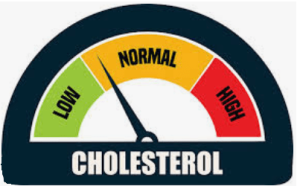 Cholesterol management and maintenance can be challenging. Medications such as statins like Lipitor will do the job chemically. However, you may be able to reduce your dependence on the pharmaceutical solution with a change in your diet, although there are some artificial supplements in this article.
Cholesterol management and maintenance can be challenging. Medications such as statins like Lipitor will do the job chemically. However, you may be able to reduce your dependence on the pharmaceutical solution with a change in your diet, although there are some artificial supplements in this article.
Most importantly, before undertaking any changes to your health regimen, consult with your family doctor. The doctor will give you the best and safest advice.
Bad (LDL) vs Good Cholesterol (HDL)
There are two kinds of cholesterol, let’s label them as BAD and GOOD. The BAD leaves plaque on the sides of your arteries, hardens the arteries; the GOOD dissolves bad cholesterol and carries it to the liver for cleansing from the body.
Healthy eating tips
Food contributes a small portion to increases your LDL but every dietary change you make will benefit you.
Cut out red meat
Red meats such as beef, pork and sausages have more cholesterol in them. Eat them to the absolute minimum, once per week or less frequently. Replace red meats with poultry and fish.
Eliminate trans fats
Again, the bad and the good. Ruminant transfat vs artificial transfat: the first comes from animals that graze naturally, so milk from cows is ok but artificial transfat is produced by food producers adding additives such as corn oil, safflower oil, grapeseed oil. A tip: if liquid fat you use coagulates when it cools off, avoid further use of that oil.
Read the label on the food and reduce intake as much as possible of foods high in transfat additives.
Artificial trans fats
Avoid bakery items containing hydrogenated oils. Read labels! Use olive oil or coconut oil, good; vegetable, corn, safflower or grapeseed oils, not good and usually these oils rancid after heating. Rancid oils contain free radicals that oxidize LDL cholesterol and attack the lining of your arteries.
Eliminate sugar and starchy foods
Sugar and starchy foods raise your LDL cholesterol and triglycerides, leading to the hardening of your arteries. The short of it is that starchy food is converted into sugar by pancreatic juices and once the body absorbs the sugar it needs it converts the extra sugar into LDL, the bad cholesterol. Avoid or eliminate sugar and carbs from your diet.
Eat more soluble fibre
Soluble fibres are work with the body to reduce bad cholesterol by converting it into bowel waste, eliminating it from the body. Again, in short, eat more sources of soluble fibre such as oats, peas, beans, apples, carrots, barley and psyllium.
Plant sterols and fibre supplements
Plant sterols (usually sold as sterol esters) are recognized by the FDA as reducing the risk of coronary heart disease. There are other useful supplements like artichoke extract, pomegranate, soy protein, Indian gooseberry (Amla), garlic and pantethine (vitamin B5) that are beneficial in terms of the prevention of heart attacks and strokes.
Whey protein supplement
Remember little Miss Muffet eating her curds and whey. Hopefully, the whey was whey protein which works to lower LDL. Whey protein is available at health food stores.
Eat more omega-3 fat foods
Omega-3 fats are healthy fats naturally present in fish oils and nuts. They increase the amount of circulating HDL cholesterol, which binds the bad LDL cholesterol. Eat salmon, herring and mackerel as well as walnuts, ground flaxseeds and almonds. Grind flaxseed and sprinkle it on salads, cereals and yogurts as supplements to your diet.
Eat foods with anthocyanin
Studies have shown that HDL levels, the good cholesterol, can be increased significantly in a few weeks. Therefore eat more foods high in anthocyanins like eggplant, purple corn, red cabbage, blueberries and blackberries. Raising the HDL levels gives your body a better balance of cholesterol levels reducing the risk of heart attacks and strokes.
Exercise regularly
Any exercise, especially that which elevates the heart rate will improve the ratio of total cholesterol to HDL cholesterol.
Consider a supplement called Ubiquinol or CoQ10
Adults above the age of 60 need 400 mg once daily, younger people need between 200 mg and 300 mg daily. CoQ10 prevents oxidation of LDL cholesterol which results in more hardening of the arteries. What causes the oxidation of cholesterol? Fried foods but so do other culprits, margarine, commercially baked goods and cigarette smoking.
Take calcium and vitamin D3 supplements
Recent studies on postmenopausal and overweight women found that supplements of calcium combined with vitamin D3 lowered cholesterol.
Eat more foods high in polyphenols
Polyphenol consumption has a connection to a lower risk of mortality from heart attacks. Foods high in polyphenols include vegetables, fruits, tea, coffee, chocolate and wine. Eat a Mediterranean diet or a DASH diet, and you will automatically get enough polyphenols with your food.
Take niacin/ nicotinic acid
The short of it is that niacin reduces oxidation of LDL, reducing or even stopping the atherosclerotic process.
Curcumin
Studies have shown that curcumin offers a triplet of benefits reducing lipid oxidation, reducing cholesterol and increasing HDL levels. Three benefits in one supplement.
Vitamin E (tocopherols, tocotrienols)
Vitamin E with gamma-tocopherol in it is the best supplement to get from your health store. The vitamin is an antioxidant that adds to heart health.
Conclusion
You can do a lot to improve your cholesterol levels. Change your diet, shed some weight, exercise and quit smoking. It is a slow process that will take 1 to 2 months to give you significant benefits. In addition, there are specific supplements and vitamins, which prevent heart attacks and strokes as well. With these measures, the majority of people with high LDL cholesterol can change their cholesterol levels without taking statins. Statins have serious side effects like Alzheimer’s disease and a painful muscle condition called rhabdomyolysis.
 Always consult with your doctor when you want to make changes to your health regimen. The doctor is a professional and can refer you to the proper medical specialist to affect the necessary changes to improve your health. Do not make changes relating to your health without this crucial consultation.
Always consult with your doctor when you want to make changes to your health regimen. The doctor is a professional and can refer you to the proper medical specialist to affect the necessary changes to improve your health. Do not make changes relating to your health without this crucial consultation.
Source: Quora, a retired physician, Ray Schilling





